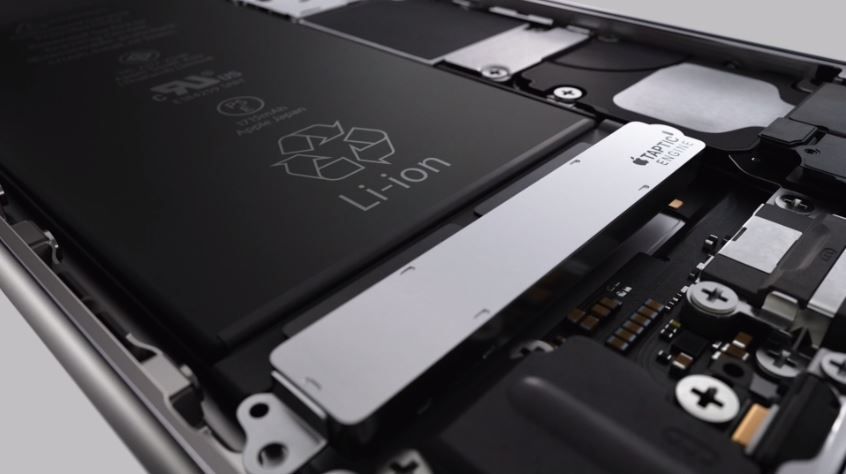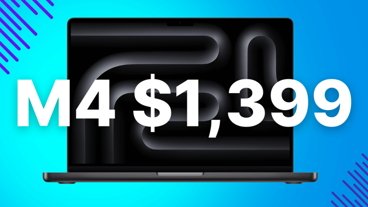Shares of Apple stock fell more than 2 percent in early trading Thursday, following a highly questionable report from the Far East claiming that Apple's integrated circuit suppliers are concerned over the prospect of fewer iPhone-related chip orders.
Apple is alleged to have reduced iPhone parts forecasts at an undisclosed "major" analog integrated circuit firm, DigiTimes reported on Thursday. Market watchers attributed the negative report from the unreliable supply chain-focused publication for losses seen by Apple at the outset of trading, though shares have recovered slightly as the day has progressed.
Confusingly, the report in question specifically claimed that overall shipments of the iPhone 6s are expected to reach as many as 80 million units in the third quarter of 2015, which concluded on Wednesday — less than a week after the iPhone 6s launched.
Apple sold 13 million units in the iPhone 6s launch weekend, during which some models were severely constrained with new orders shipping in weeks. Given that Apple only keeps a few weeks' worth of channel inventory for its products, it's implausible that the company's tightly run supply chain somehow built another 67 million iPhone 6s units within the three days following last weekend's launch.
While the publication does occasionally correctly predict Apple's future product plans, DigiTimes is notorious for playing fast and loose with supply chain rumors. For example, earlier this year it erroneously claimed that Apple planned to launch a new 4-inch handset this fall alongside the iPhone 6s and iPhone 6s Plus. And last fall, it gave an exceptionally vague 15-month launch window for the then-widely-anticipated 12-inch MacBook with Retina display.
Years ago, Apple Chief Executive Tim Cook warned investors not to read too much into supply chain rumors.
"The supply chain is very complex, and we obviously have multiple sources for things," Cook said in 2013. "Even if a particular data point were factual, it would be impossible to interpret that data point as to what it meant for our business."
Apple frequently uses multiple suppliers for the same part — the A9 chip in the new iPhones, for instance, is built by both Samsung and TSMC. The company will skew orders towards one firm or another based on a manufacturer's technology, capacity, and pricing.
 Roger Fingas
Roger Fingas







-m.jpg)






 Christine McKee
Christine McKee
 Malcolm Owen
Malcolm Owen

 Sponsored Content
Sponsored Content

 Amber Neely
Amber Neely











78 Comments
If Apple is looking to buy back stock, now is a good opportunity. I'm not saying that Apple had anything to do with this rumor, but it certainly isn't in their best interest to respond to it right away.
"Overall shipments of the iPhone 6s series are expected to reach 75-80 million units in third-quartet 2015, but the estimated volume for fourth-quarter 2015 has been reduced to 65-70 million, the sources cited the IC supplier as saying."
80+70 = 150 million phones for Q3 and Q4 combined.
75+65 = 140 million phones for Q3 and Q4 combined.
WTF is the problem? Thats way more than the 115 million sold last year.
Expectations; always the expectations.
Sometimes I think that AAPL will never have a meaningful break out. Anytime good news is announced it is tempered with negative spin and FUD. This cycle could really just repeat over and over. It makes being long AAPL seem like running in place.
"Overall shipments of the iPhone 6s series are expected to reach 75-80 million units in third-quartet 2015, but the estimated volume for fourth-quarter 2015 has been reduced to 65-70 million, the sources cited the IC supplier as saying."80+70 = 150 million phones for Q3 and Q4 combined.
75+65 = 140 million phones for Q3 and Q4 combined.
WTF is the problem? Thats way more than the 115 million sold last year.
The problem is that WS got no clue how many suppliers Apple have and just based on a rumor from a single supplier, it estimated the % of one supplier as the whole % supply. It totally BS. What if Apple reduced order from TMSC supply but increase from Samsung? No one knows and WS just love to manipulate the stock just based on an unknown bs rumor from the East.
Maybe it was the news about Dunkin' Donuts planning to shut down 100 stores this year and next that has markets jittery today. ???? "Wall Street logic"